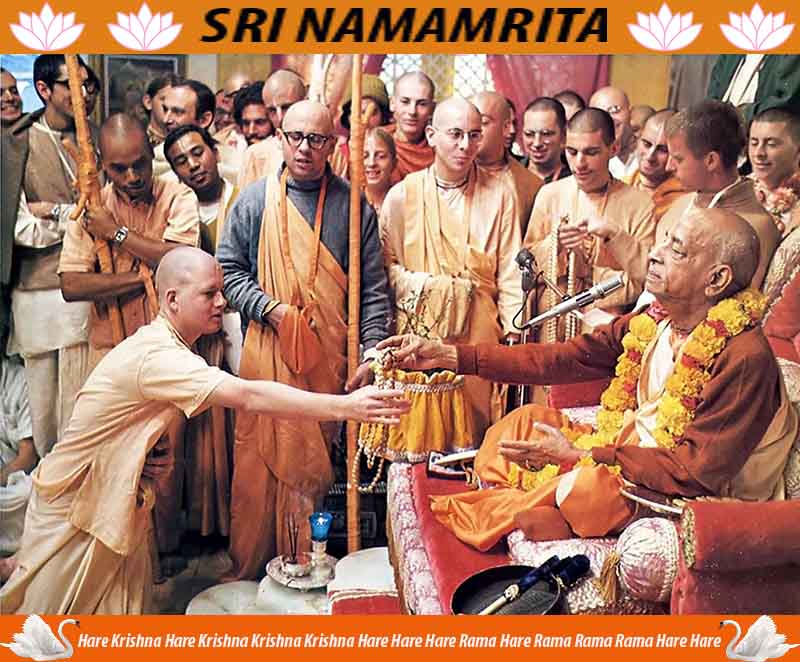
Scripture prescribes the austerity of chanting the Hare Krsna maha−mantra to become free from material contamination and go back home, back to Godhead: Human life is meant not for becoming a hog or dog, but for tapo divyam, transcendental austerity. Everyone should be taught to undergo austerity, tapasya. Although it may not be possible to undergo tapasya like that of Prsni and Sutapa, the sastra has given an opportunity for a method of tapasya very easy to perform−the sankirtana movement. One cannot expect to undergo tapasya to get Krsna as one's child, yet simply by chanting the Hare Krsna maha−mantra (kirtanad eva krsnasya), one can become so pure that one becomes free from all the contamination of this material world (mukta−sangah) and goes back home, back to Godhead (param vrajet). The Krsna consciousness movement, therefore, is teaching people not to adopt artificial means of happiness, but to take the real path of happiness as prescribed in the sastra−the chanting of the Hare Krsna mantra−and become perfect in every aspect of material existence.
¯Srimad−Bhagavatam 10.3.34−35
Chanting Versus Other Spiritual Practices (Other than Yajna, Yoga, and Austerity) Although there are other bona fide processes of spiritual realization, no other process is as effective in this age as the constant chanting of the maha−mantra: We have to accept everything favorable to the circumstances. Rejection of other methods in a particular circumstance does not mean that the rejected ones are not bona fide. But for the time being, taking into consideration the age, time, and object, methods are sometimes rejected even though bona fide. We have to test everything by its practical result. By such a test, in this age the constant chanting of the Hare Krsna maha−mantra undoubtedly proves very effective.
¯The Science of Self−Realization

